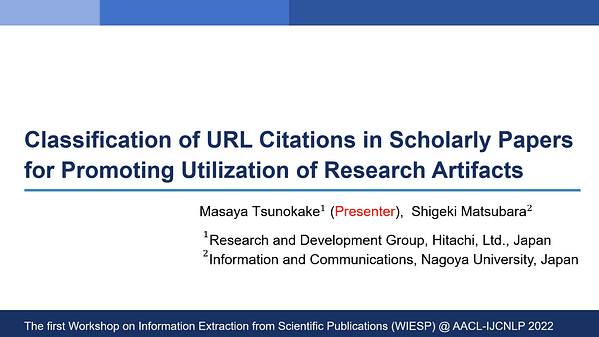Would you like to see your presentation here, made available to a global audience of researchers?
Add your own presentation or have us affordably record your next conference.
keywords:
data sharing and access
reproducible research
open science
Objective Transparency and reproducibility are expected to
be normative practices in clinical trials used for decision-
making on marketing authorizations for new medicines. A
cross-sectional study was conducted aiming to assess
inferential reproducibility for main trials (sometimes referred
to as pivotal trials) assessed by the European Medicines
Agency.
Design Two members of the team (J.G., M.S.) independently
identified all studies on new medicines, biosimilars, and
orphan medicines given approval by the European
Commission between January 2017 and December 2019,
categorized as main studies in the European Public
Assessment Reports (EPARs). Sixty-two of 292 eligible
studies were randomly sampled. One team member (J.G.)
identified the sponsors and sent a standardized message to
retrieve the individual patient data (IPD) for these studies.
Up to 3 reminder messages were sent. A dossier for each
study was prepared containing the IPD, the protocol, and
information on the conduct of the study. A second team
member (M.S.), who had no access to the study reports, used
the dossier to run an independent reanalysis of each trial. All
results of these reanalyses were reported in terms of each
study’s conclusions, P values, effect sizes, and changes from
the initial protocol. Two team members (J.G., F.N.) not
involved in the reanalysis compared the results of the
reanalyses with the published results of the trial.
Results A total of 292 main studies in 173 EPARs were
identified. Among the 62 studies randomly sampled, IPD was
received for 10 trials (16%). The median number of days
between data request and data receipt was 253 (IQR, 182-
469). For these 10 trials, 23 distinct primary outcomes were
identified for which the conclusions were reproduced in all
reanalyses. Therefore, 10 of 62 trials (16%; 95% CI, 8%-28%)
were reproduced. Regarding the 52 studies without available
data, assessment of reproducibility was not possible. Forty-
eight of the 52 sponsors replied to the request. The reasons
for nonsharing can be found in Table 22. There was no
change from the original study protocol regarding the
primary outcome in any of the 10 studies. Spin (ie,
interpretation bias) was observed in the report of 1 study.

Conclusions Despite their results supporting decisions that
affect millions of people’s health across the European Union,
most of the main studies used in EPARs lack transparency as
data were not shared with external researchers to assess
reproducibility. The limits of this approach lie in the small
amount of IPD obtained. Nonetheless, reanalyses of the few
trials with available data showed complete inferential
reproducibility. Further studies with a larger sample size are
necessary to estimate the reproducibility of clinical trials
included in the marketing authorizations.
Conflict of Interest Disclosures David Moher is a member of
the Peer Review Congress Advisory Board but was not involved in
the review or decision for this abstract. No other disclosures were
reported.
Funding/Support The project is funded by the Agence Nationale
de la Recherche.
Role of the Funder/Sponsor The sponsor had no role design
and conduct of the study; collection, management, analysis, and
interpretation of the data; preparation, review, or approval of the
abstract; and decision to submit the abstract for presentation.


